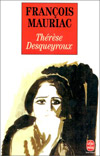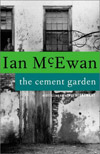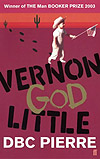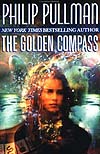
Thérèse Desqueyroux
By François Mauriac
When people ask if there's a character I'd really like to play in a movie, I always think of this French heroine. The book is a psychological portrait of a woman who may have poisoned her husband. Her mother died when she was young, her husband doesn't love her, and—like all of us—she has a friend who's younger, blonder, thinner, and makes her feel awful and ugly. Mauriac has created a fully formed character. At points, you really dislike her (and she despises herself), but you also realize she's far too bright for her circumstances and completely misunderstood. I love books that go through the past and rehash it from different perspectives, stories in which you're forced to change your mind about a person from one minute to the next.
By François Mauriac
When people ask if there's a character I'd really like to play in a movie, I always think of this French heroine. The book is a psychological portrait of a woman who may have poisoned her husband. Her mother died when she was young, her husband doesn't love her, and—like all of us—she has a friend who's younger, blonder, thinner, and makes her feel awful and ugly. Mauriac has created a fully formed character. At points, you really dislike her (and she despises herself), but you also realize she's far too bright for her circumstances and completely misunderstood. I love books that go through the past and rehash it from different perspectives, stories in which you're forced to change your mind about a person from one minute to the next.

The Cement Garden
By Ian McEwan
This novel is about a family of children whose father died, and then their mother dies, leaving them orphans. It's spooky and disturbing, with the children aping adult life even though they're not ready for grown-up responsibilities. I love how McEwan writes: it's so spare, and every word is so perfect. This novel made me see how lovely life is for a child who doesn't have to deal with things beyond her depth—how divinely innocent my daughter's world is. It's a bit sad for me, though, because, with my father's early death, I don't have a map for a normal childhood beyond her age.
By Ian McEwan
This novel is about a family of children whose father died, and then their mother dies, leaving them orphans. It's spooky and disturbing, with the children aping adult life even though they're not ready for grown-up responsibilities. I love how McEwan writes: it's so spare, and every word is so perfect. This novel made me see how lovely life is for a child who doesn't have to deal with things beyond her depth—how divinely innocent my daughter's world is. It's a bit sad for me, though, because, with my father's early death, I don't have a map for a normal childhood beyond her age.

Vernon God Little
By DBC Pierre
A satirical take on the media and hypocrisy, this novel has the most wonderfully alienated narrator since Holden Caulfield in The Catcher in the Rye. The author is absolutely fluent in the voice of a teenage boy, one accused of being an accessory to a high school shooting in Texas. People around him sell their stories to newspapers and get on television programs, while he's stuck in this insane world. I was inspired by the fact that the writer didn't publish it until he was over 40 years old. That makes me think, "Oh, I still have time!"
By DBC Pierre
A satirical take on the media and hypocrisy, this novel has the most wonderfully alienated narrator since Holden Caulfield in The Catcher in the Rye. The author is absolutely fluent in the voice of a teenage boy, one accused of being an accessory to a high school shooting in Texas. People around him sell their stories to newspapers and get on television programs, while he's stuck in this insane world. I was inspired by the fact that the writer didn't publish it until he was over 40 years old. That makes me think, "Oh, I still have time!"

Your One-Year-Old
By Louise Bates Ames, PhD, Frances L. Ilg, MD, and Carol Chase Haber
I'm a big fan of manuals and how-to books—almost anything that falls under the category "Please help me because I don't know what I'm doing!" I've found that parenting books can be very progressive, very groovy, very "Let's sit down and talk about why you bonked Billy in the eye." Or there's the English take, which is, "Baby must be in bed at 6 o'clock with a mashed banana and a glass of milk."
Thank goodness this series of books is actually helpful (the last is Your Ten- to Fourteen-Year-Old.) The authors explain that children go through six-month cycles of equilibrium and disequilibrium. During disequilibrium, things that used to go smoothly no longer do. It's not because your child is being a brat or you're a failure as a mother, but because there are periods of readjustment, often sparked by physiological changes. The book says it's entirely normal behavior and it's okay if it drives you totally mad.
By Louise Bates Ames, PhD, Frances L. Ilg, MD, and Carol Chase Haber
I'm a big fan of manuals and how-to books—almost anything that falls under the category "Please help me because I don't know what I'm doing!" I've found that parenting books can be very progressive, very groovy, very "Let's sit down and talk about why you bonked Billy in the eye." Or there's the English take, which is, "Baby must be in bed at 6 o'clock with a mashed banana and a glass of milk."
Thank goodness this series of books is actually helpful (the last is Your Ten- to Fourteen-Year-Old.) The authors explain that children go through six-month cycles of equilibrium and disequilibrium. During disequilibrium, things that used to go smoothly no longer do. It's not because your child is being a brat or you're a failure as a mother, but because there are periods of readjustment, often sparked by physiological changes. The book says it's entirely normal behavior and it's okay if it drives you totally mad.

His Dark Materials Trilogy: The Golden Compass, The Subtle Knife, and The Amber Spyglass
By Philip Pullman
The three novels in this series have everything: amazing plot, theology, metaphysics and heartrending romance. I started the first, The Golden Compass, and read the whole lot in about three days, and when I finished I was absolutely bereft. I'm so jealous of people who haven't started them. The last novel, The Amber Spyglass, has the most beautiful speeches about love. My now husband, Len, and I hadn't even set a wedding date when I was sobbing all over the book, thinking I must turn this page down, because when we do marry we'll somehow use that particular passage. I showed it to him and he burst into tears, too, and it became the first reading at our wedding.
By Philip Pullman
The three novels in this series have everything: amazing plot, theology, metaphysics and heartrending romance. I started the first, The Golden Compass, and read the whole lot in about three days, and when I finished I was absolutely bereft. I'm so jealous of people who haven't started them. The last novel, The Amber Spyglass, has the most beautiful speeches about love. My now husband, Len, and I hadn't even set a wedding date when I was sobbing all over the book, thinking I must turn this page down, because when we do marry we'll somehow use that particular passage. I showed it to him and he burst into tears, too, and it became the first reading at our wedding.




